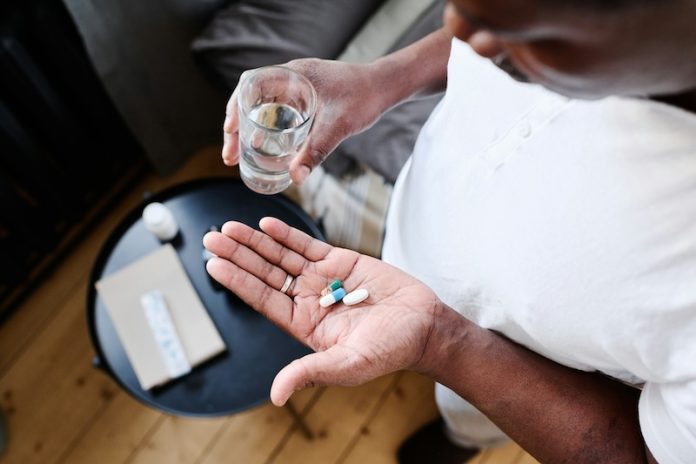
Statins are commonly prescribed medications that help lower high cholesterol levels, reducing the risk of heart disease. Among these, rosuvastatin is a popular option because of its strong cholesterol-lowering effects.
However, recent research from Johns Hopkins University suggests that this drug, particularly in higher doses, may have harmful effects on the kidneys.
When rosuvastatin was first approved by the U.S. Food and Drug Administration (FDA), there were already early signs of potential kidney issues.
Some patients reported symptoms like hematuria (blood in the urine) and proteinuria (protein in the urine), which can signal kidney problems. Despite these warnings, follow-up studies to investigate the risks in real-world settings were limited.
To understand these risks better, researchers at Johns Hopkins studied health records spanning from 2011 to 2019. They compared the outcomes of 152,101 people who started using rosuvastatin with 795,799 people who started taking another common statin, atorvastatin.
The comparison aimed to determine whether rosuvastatin posed unique risks compared to a similar medication.
Over three years of monitoring, the findings revealed that 2.9% of rosuvastatin users experienced hematuria, while 1.0% developed proteinuria.
When directly compared to atorvastatin users, those taking rosuvastatin faced an 8% higher risk of hematuria, a 17% higher risk of proteinuria, and a 15% higher risk of developing severe kidney problems, such as the need for dialysis or a kidney transplant.
The risks were even greater for individuals taking higher doses of rosuvastatin. Alarmingly, the study found that 44% of patients with advanced kidney disease were prescribed doses higher than the FDA’s recommended limit for people with poor kidney function.
These higher doses significantly increased the likelihood of kidney damage.
The researchers concluded that while rosuvastatin is effective in lowering cholesterol and providing heart benefits, its potential to cause kidney problems, especially at high doses, raises serious concerns.
They emphasized that the risks might outweigh the benefits for certain groups, such as individuals with existing kidney issues. For these patients, alternative treatments or more cautious dosing may be a safer choice.
The study, led by Jung-im Shin and colleagues, was published in the Journal of the American Society of Nephrology. The findings stress the need for healthcare providers to carefully evaluate the dosage of rosuvastatin, particularly for those with compromised kidney function.
This research encourages doctors to balance the benefits of lowering cholesterol with the potential risks to kidney health, tailoring treatment plans to the needs of individual patients.
How People Feel About Statins on Social Media
Statins are medications that help lower cholesterol and are widely recognized for reducing the risk of heart disease.
While their effectiveness is well-documented, discussions about statins online, particularly on social media platforms like Reddit, reveal a different story—one filled with skepticism, misinformation, and mixed emotions.
A recent study by Stanford Medicine looked into over 10,000 Reddit discussions to better understand how people feel about statins and why they might resist using them.
Researchers used artificial intelligence (AI) to analyze these conversations, finding that only 3% of the posts had a positive tone. Most of the discussions were either neutral or negative, with a surprising amount of misinformation about the medications.
The researchers believe the negative tone could be partly due to unhappy statin users being more vocal about their experiences online, creating a biased view.
People satisfied with their treatment are less likely to join such discussions, leading to an overrepresentation of negative opinions.
To dig deeper into why many people seem resistant to statins, the team categorized the discussions into key themes. Common topics included:
- Distrust of pharmaceutical companies: Some users expressed concerns about the honesty of drug companies, questioning the reliability of clinical trial results and marketing practices.
- Skepticism about statin effectiveness: Many participants doubted whether statins truly reduce the risk of heart disease or if their benefits were exaggerated.
- Interest in alternative treatments: Popular alternatives discussed included the ketogenic diet and red yeast rice supplements.
The ketogenic diet, often promoted for weight loss, was a frequent topic of discussion. Some users shared that despite losing weight on the diet, their cholesterol levels went up, making them question the traditional link between cholesterol and heart disease.
For researchers, this was an unexpected finding, highlighting how personal experiences can shape public perceptions about health.
Red yeast rice supplements were also commonly mentioned as a natural alternative to statins. However, these supplements contain only tiny amounts of the compounds that lower cholesterol, and their effectiveness is far less reliable than statin medications.
The study’s findings emphasize the critical need for evidence-based information in public health discussions. While social media provides a platform for people to share experiences and ideas, it also amplifies misinformation.
It’s essential for individuals to critically evaluate what they read online and consult healthcare professionals for accurate advice about medications like statins.
By analyzing social media through AI, researchers hope to better understand public concerns and address gaps between scientific evidence and public opinion.
This approach could help people make more informed choices about their health and encourage conversations rooted in reliable information.
The Stanford Medicine study serves as a reminder that while personal stories are valuable, they should not replace professional guidance or scientific evidence when making important health decisions.
If you care about heart health, please read studies that yogurt may help lower the death risks in heart disease, and coconut sugar could help reduce artery stiffness.
For more information about health, please see recent studies that Vitamin D deficiency can increase heart disease risk, and results showing vitamin B6 linked to lower death risk in heart disease.
Copyright © 2024 Knowridge Science Report. All rights reserved.



